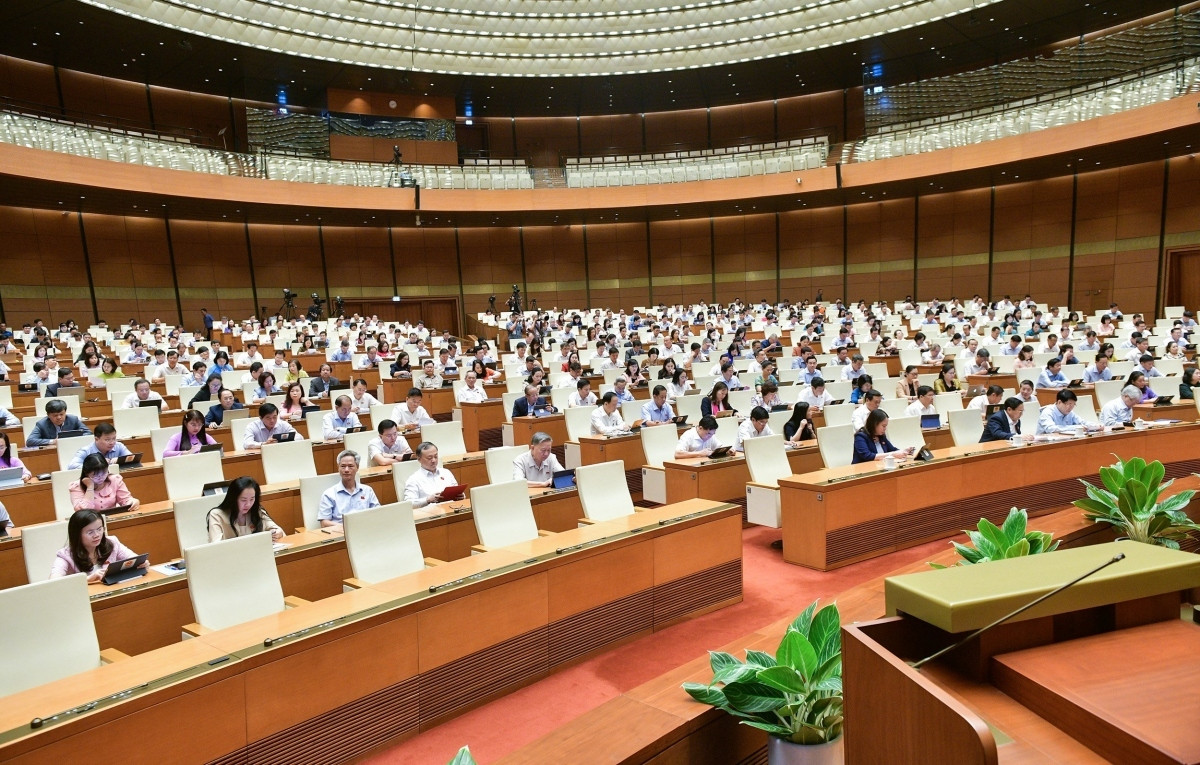

In a reported presented at the plenary session on May 20, Deputy Prime Minister Le Minh Khai affirmed that despite facing global complications and economic uncertainties, the Vietnamese economy is on its way to reaching pre-pandemic levels, with many international organisations continuing to appreciate the country’s growth prospects this year.
The local economy is gathering steam, securing a growth rate of 5.66% in the first quarter of 2024, the highest in the same period of 2020 to 2023. Notably, import-export activities are on the upward trajectory, resulting a trade surplus of US$8.4 billion in the past four months, while registered FDI capital rose 4.5% year on year to 9.27%.
However, the Deputy PM also pointed out shortcomings faced in the Government’s macroeconomic performance, including mounting pressure relating to inflation, credit growth, and gold price control. According to him, the Government has worked out 11 major tasks and solutions to fulfil targets for the year and for the 2021 - 2025 period, with priority given to promoting growth associated with macroeconomic stability, controlling inflation, and ensuring major balances of the economy.
Discussing the report on May 23, deputy Nguyen Nhu So of Bac Ninh province, hailed the government’s sound performance, but said the local economy is still encountering difficulties due to its high level of openness, a slow recovery of aggregate consumer demand, and a lack of capital and orders.
Given the difficulties, achieving the 6-6.5% growth target for 2024 will be a challenging task, he admitted.
The deputy suggested that the government synchronously implement solutions to support businesses, especially private and domestic businesses, by focusing on market development, brand building, capital access facilitation, and business environment improvement. In addition, he also stressed the need to continue to control inflation, ensure stable macro growth, and stimulate aggregate demand.
Meanwhile, deputy Tran Tuan Anh of Ho Chi Minh City asked for viable solutions to address pending issues. According to the deputy, although investment procedures have been reduced somewhat, they are still not simplified enough to support the implementation of investment projects.
The mechanism is yet to be synchronized that makes investment procedures time consuming, leading to slow disbursement of public investment capital, said Anh.
He suggested that the government continue simplifying investment procedures as well as the annual medium-term capital allocation mechanism to ensure effective investment activities. Furthermore, he said it is necessary to focus on key national projects, especially projects under the National Target Programme, because many health, education, and transportation projects under the Programme are slow going, impacting the effectiveness and significance of the Programme.
VOV